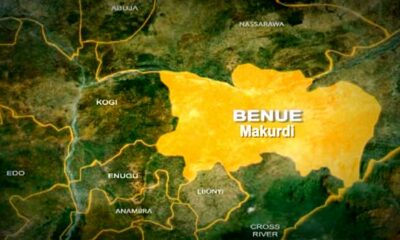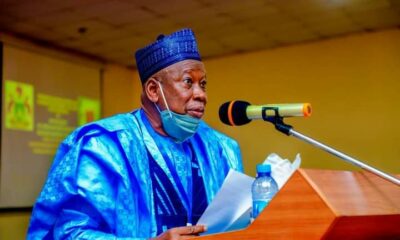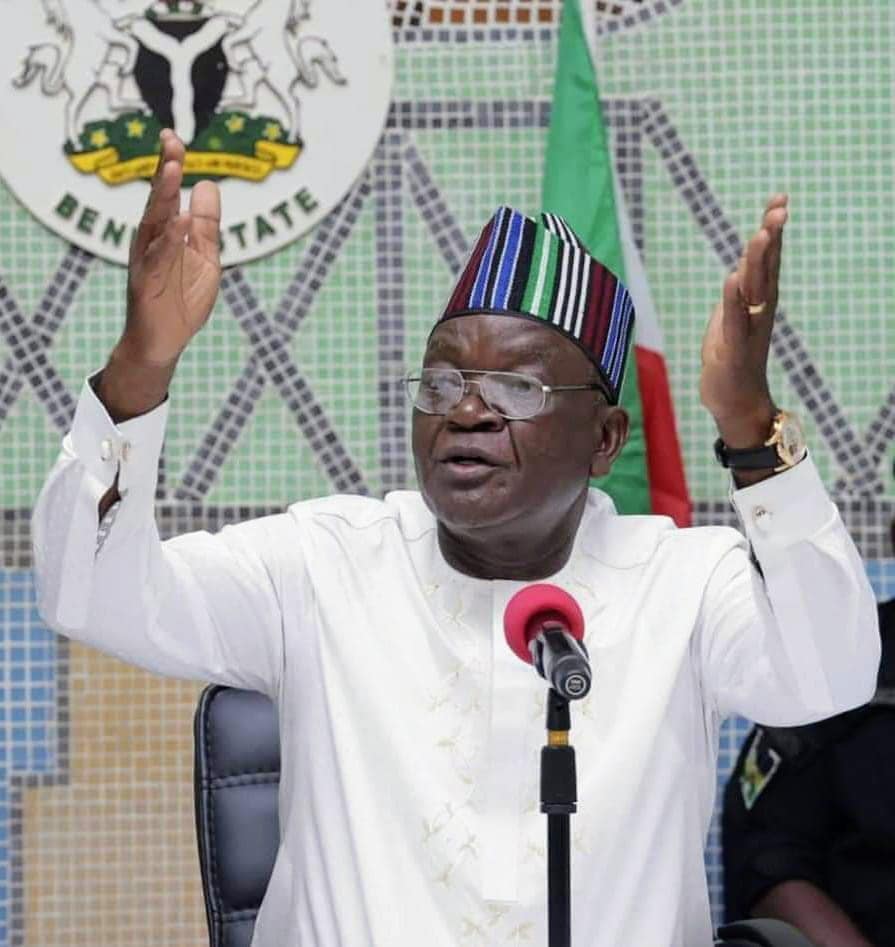Latest News
Ex-CDS urges FG to respect agitation for restructuring

A Former Chief of Defence Staff, Gen. Alexander Ogomudia (rtd), has expressed fear over some recent developments in the country, which according to him are indications that Nigeria is overdue for restructuring.
Ogomudia, who lamented the high level of insecurity in the country, said: “A situation where a former Chief of Defence Staff, Air Chief Marshall Alex Badeh, was killed in the streets like an urchin and nothing happened is a sign that the nation is not moving in the right direction”.
The former military chief who delivered the keynote address at the Good Governance Lecture organised by the Catholic Church of Warri’s Justice Development and Peace Commission (JDPC), chaired by Chief Edwin Kiagbodo Clark, warned that the continued suppression of the agitations for the restructuring of the country could lead to a violent break up of the nation.
He urged those opposed to restructuring to borrow a leaf from the break up of Yugoslavia and Sudan, saying that even in Spain, the Catalonians wanted to break away and in Britain, Scotland sought autonomy.
He said restructuring was a global trend which every right-thinking government should embrace for national integration and development, especially in a country like Nigeria with the practice of what he described as “a fake federal system.”
Ogomudia also criticised the death penalty for hate speech offenders. He created a mild drama in the hall when he paused to ask anyone who could define hate speech to come forward. And when no one came out, Ogomudia said “they want to impose the death penalty for something that no one can truly define? Where is this country headed?”
He described the type of politics practised in Nigeria as toxic and detrimental to national development, saying “we have a fractured politics and everyone is doing things that will hurt the country.”
According to him, “Nigeria needs true federalism to advance like other nations. Nigeria is the only country where states share money coming from only one source monthly.”
The former CDS, who argued that Nigeria was overdue for change, said that restructuring the country would guarantee ethnic harmony, accountability, freedom of speech, independence of the judiciary and a fair electoral process.
The key speaker and Dean, Faculty of Arts, Delta State University, Prof. Sunny Awhefeada, who also delivered a lecture titled “Restructuring on the Basis of Federalism and Emergence of a New Nigeria”, said too much concentration of power at the centre had led to the centre being overburdened and corrupt, leading to the collapse of public infrastructure nationwide.
According to him, many of the problems facing the country could have been averted if the nation had practiced true federalism. He said the failure of the country to practise true federalism had killed competitiveness amongst the states and become a disincentive to collective national development.
“We now run a mono economy while the cash crops have vanished. If the states in Nigeria had been allowed to develop by themselves, some of the states would have been richer than some states in the United States of America. Every state has what it takes to survive when the right environment is created.”
In a swift reaction, the presidency flayed Ogomudia’s comment that the continued suppression of the agitations for the restructuring could lead to a violent breakup of the nation.
The presidency, in a statement by the Senior Special Assistant on Media and Publicity, Garba Shehu, yesterday pointedly declared that Nigeria operated a constitutional system and changes to the country in structure, systems, policy and politics must abide by the norms of democracy.
The presidency said: “The vituperation coming from a former military chief speaks volumes about the mindset of groups of citizens who have yet to accept democracy as a form of government.
“It is very important to stress that we, as a nation, are a constitutional democracy and changes to the country in structure, its systems, policy and politics must abide by the norms of democracy otherwise they would be extrajudicial and, therefore, unconstitutional.
(Credit: The Guardian)
























